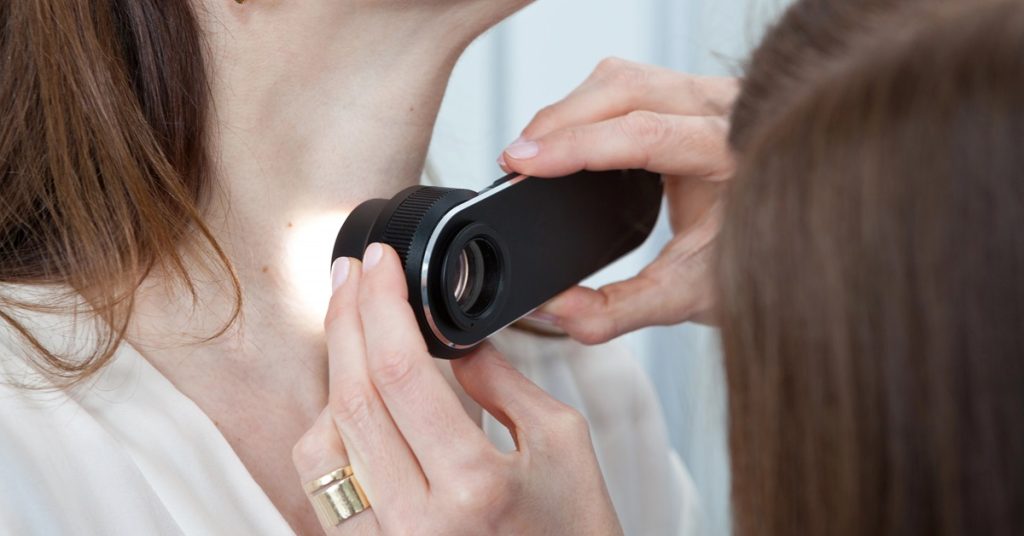Understanding Skin Discoloration: Causes and Treatments

Our skin is the largest organ in our body, and it is also the most visible one. Skin discoloration is a common phenomenon that can occur because of various reasons, and it can be distressing for many people. The good news is that most discolorations are harmless and can be treated with proper care and attention. So, let’s explore the causes and treatments of skin discolorations.
Sun Damage
One of the most common causes of skin discoloration is sun damage. Exposure to the sun’s harmful ultraviolet rays accelerates the production of melanin, a pigment that gives our skin its color. Over time, this increased production leads to uneven skin tone, age spots, and freckles.
Fortunately, several aesthetic treatments can help correct skin discoloration due to sun damage. Some popular options include:
- Laser therapy: Laser treatments such as IPL (Intense Pulsed Light) or laser resurfacing can target pigmented areas and stimulate collagen production, helping to reduce the appearance of sunspots and uneven skin tone.
- Chemical peels: Chemical peels involve applying a solution to the skin to exfoliate the outer layer, revealing fresh, even-toned skin underneath. Peels can be customized based on the severity of discoloration and can effectively lighten sun-damaged areas.
- Microdermabrasion: This procedure uses a device to gently exfoliate the skin, removing dead cells and promoting new cell growth. It can improve skin texture and reduce the appearance of sunspots.
- Topical creams and serums: Over-the-counter or prescription-strength creams and serums containing ingredients such as hydroquinone, retinoids, vitamin C, or azelaic acid can help fade sunspots and even out skin tone over time.
- Microneedling: Microneedling involves creating tiny punctures in the skin with fine needles to stimulate collagen production and promote skin rejuvenation. It can be effective in reducing sun damage-related discoloration.
Hormonal Changes
Hormonal imbalances can also lead to skin discolorations. Women often experience melasma, a condition where the skin darkens because of hormonal changes from pregnancy, birth control pills, or menopause. This type of discoloration commonly occurs on the face, neck, and arms.
Treatment options include:
- Hydroquinone: This is a common treatment for melasma and is applied topically to even out the skin tone. It works by inhibiting melanin production in the skin.
- Glycolic acid peels: These peels involve exfoliating the superficial layer of the skin to reduce the appearance of dark pigmentation caused by melasma.
- Topical medications: In addition to hydroquinone, topical medications such as corticosteroids and tretinoin can be used to fade the discoloration caused by melasma and improve the overall appearance of the skin.
- Triple combination therapy: A combination of hydroquinone, retinoic acid (a form of vitamin A), and corticosteroids has been suggested as a first-line topical treatment for melasma.
- Antioxidants: Niacinamide and retinol (vitamin A) are antioxidants that can protect skin cells and help reduce the appearance of melasma.
Skin Injuries
Certain skin injuries, such as acne scars, can lead to skin discolorations. When our skin suffers from any injury, it produces excess melanin in the affected area, leading to dark spots. Similarly, eczema, psoriasis, and other inflammatory skin conditions can also leave behind dark patches.
Treatment options include:
- Laser therapy: Laser treatments, such as fractional laser resurfacing or pulsed dye laser, can target the pigmented areas of the skin and stimulate collagen production, helping to fade acne scars, eczema-related hyperpigmentation, and psoriasis discoloration.
- Chemical peels: Chemical peels can help improve the appearance of acne scars, eczema-related dark patches, and certain types of psoriasis discoloration.
- Topical creams and ointments: Prescription-strength creams and ointments containing ingredients such as hydroquinone, retinoids, corticosteroids, or calcipotriene can be used to lighten dark spots caused by acne scars, eczema, or psoriasis.
- Microneedling: Microneedling can be effective in reducing the appearance of acne scars and certain types of hyperpigmentation.
- Phototherapy: Phototherapy, also known as light therapy, uses specific wavelengths of light to target skin conditions such as psoriasis. It can help reduce inflammation, itching, and skin discoloration associated with psoriasis.
- Topical antioxidants: Certain antioxidants, such as vitamin C and niacinamide, can help improve skin discoloration caused by acne scars, eczema, or psoriasis by reducing inflammation and promoting skin healing.
Genetics
Sometimes, skin discolorations can be hereditary. People with darker skin tones are more prone to develop hyperpigmentation because of genetics. Additionally, certain rare genetic disorders, such as albinism, can cause partial or complete loss of pigmentation in the skin.
Skin discoloration due to genetics can be challenging to treat, as it is often a natural characteristic of an individual’s skin. However, some treatments may help improve the appearance of certain genetic skin conditions. These include topical creams and serums, chemical peels, microdermabrasion, laser therapy, and microneedling.
It’s important to note that improving skin discoloration due to genetics can be a gradual process, and results may vary depending on the individual.
When Help is Needed
Skin discoloration is a common concern that can be effectively addressed with the right treatment plan. Whether it’s because of sun exposure, hormonal changes, skin injuries, or genetics, there are a variety of treatment options available to improve the appearance of your skin. So, don’t let skin discoloration keep you from feeling confident and radiant.
If you’re experiencing skin discoloration, remember that you’re not alone and help is available. At DESSNA, our board-certified dermatologists are committed to helping you achieve your skin goals. Set up a consultation with us today. Let’s work together to create a personalized treatment plan that fits your needs and helps you reclaim your skin’s natural beauty. Your path to clearer, brighter skin is just a call away.



